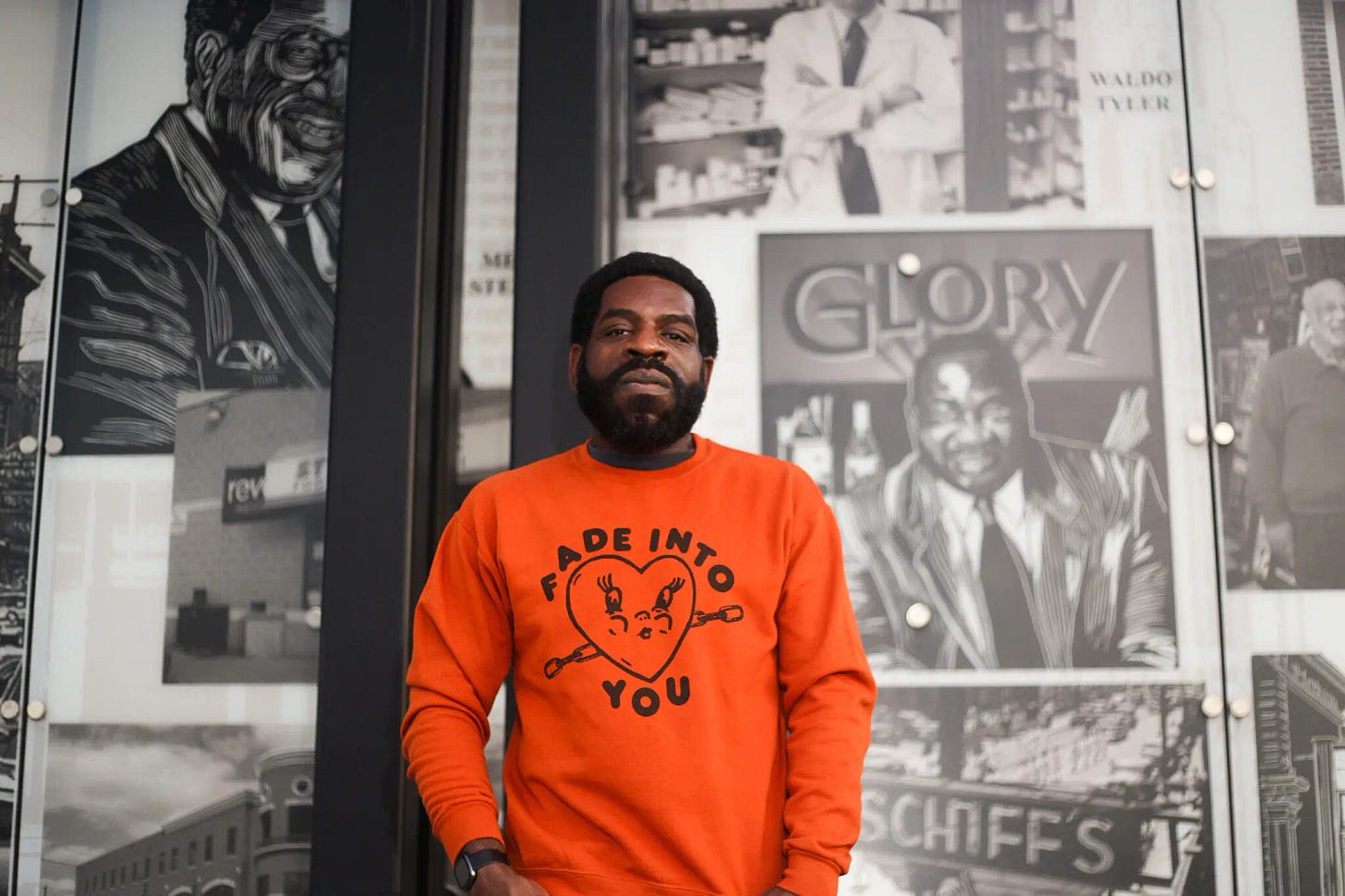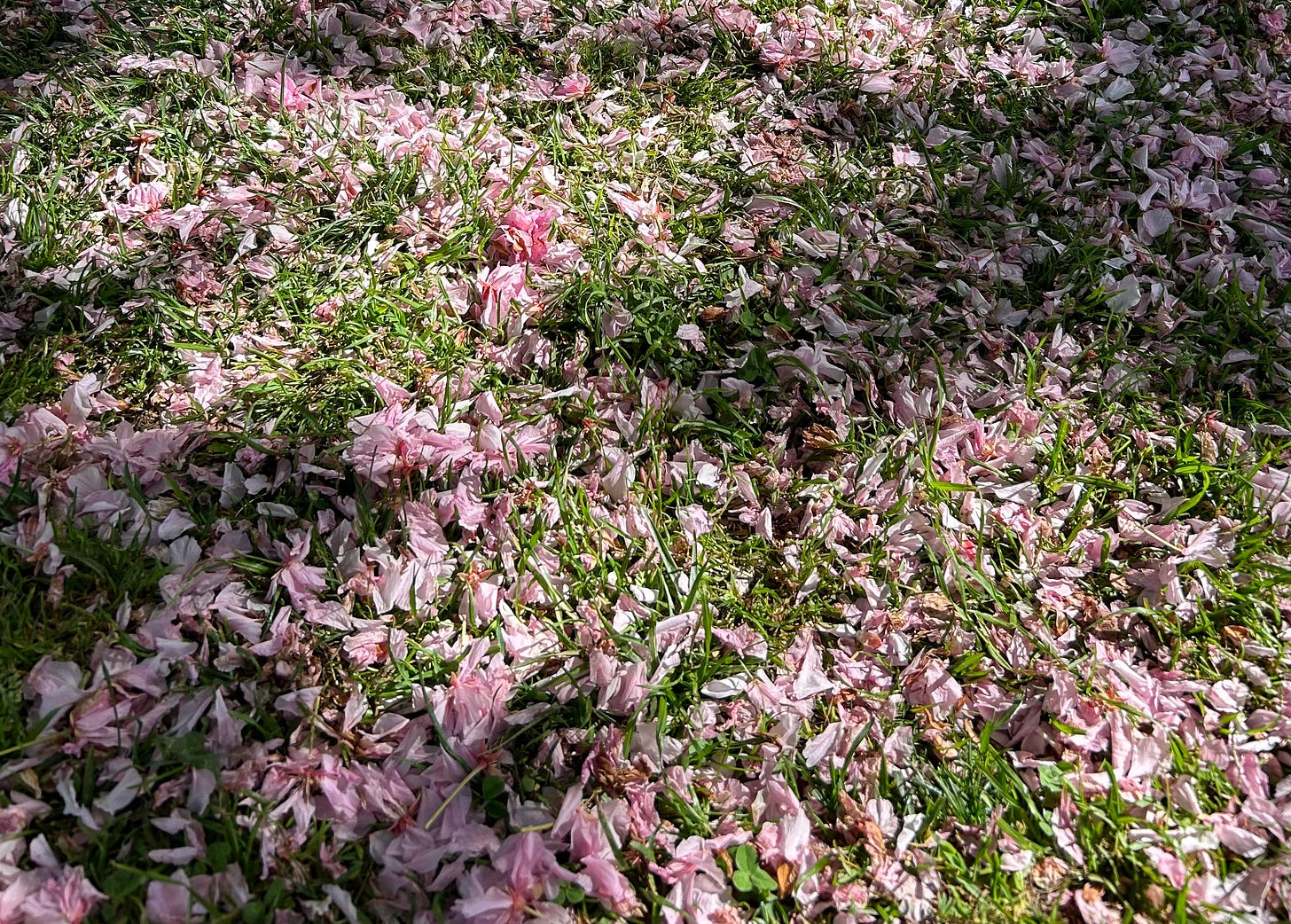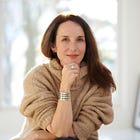Roundup: Hanif Abdurraqib on Rituals and Voids
And news from Crystal Hana Kim, Heather Radke, Lydia Millet & Ross Gay
This time of year, Brooklyn Botanic Garden maintains an interactive map on their website named “CherryWatch,” which shows you how the cherry tree esplanade is doing. Each tree is marked with a symbol telling you where it is in its cycle: a yellow circle for “pre-bloom,” a light pink flower emoji for “first bloom,” a fuchsia flower for “full bloom,” and a green circle for the trees that have dropped all their blossoms and are done for the year. Today’s CherryWatch is uniform: every single tree is in full bloom.
We’re between cycles at Thresholds at the moment, which means that we’re recording new episodes right now but won’t be putting any out for a few weeks. If you need to catch up on recent episodes, here are a few from our last cycle:
During this period, I’ve been looking back at past interviews that touched on the subject of rituals and rhythms, and particularly the conversations where we got into the rituals/rhythms that promote a sustainable relationship with writing and creativity. How do you get from pre-bloom to full bloom? What about post-bloom?
One of the standouts in this category is our interview with Hanif Abdurraqib, who I spoke with on the first day of Ramadan in 2021. This was a hard interview for me personally. I quietly, and hopefully without Hanif ever knowing, had a panic attack in the middle of it (completely unrelated to our conversation, it was just that kind of month) and did a chunk of that conversation lying down flat on the floor, since we were audio-only and he couldn’t see me. I left the interview with a crushing sense of failure at having been unable to be as present as I wanted to be for this writer I admire so much. Once we’d produced it, I never listened to it again: I didn’t want to hear my own sub-standard part of it.
That was a mistake! First of all, when I listened back to it recently, I learned that my side of the conversation is fine— not brilliant, but fine. (The things you can get done in the middle of a panic attack.) But more importantly, this is an episode to listen to on repeat because of the the generosity and insight Hanif offers, specifically about how habit and ritual function in his life and his work.

“I don't write every day, and I definitely don't do it by the clock. But what I think I need is the ability to be able to turn it on comfortably when the desire strikes. I just simply need to be able to *not run from writing,* or dread writing, when my desire to write arrives— or quite frankly, when I have a deadline.”
He talks about Ramadan and the nitty-gritty of planning and executing that kind of durational religious fasting, but then gets into a broader consideration of discipline and repetition and what habit and ritual enable— how those behaviors create a space in which you can exceed your own limitations. There’s this run of thought in the middle of the interview where he articulates something that seems —to me— aspirational about how honoring the cycles of creativity, and the rituals we build to buttress that cycle, is spiritual work. Here’s part of it:
“I find myself tapping into these same routines and rituals that feel like I'm crawling closer to a belief in something beyond myself. You know, I didn't go to school, I didn't study writing in college, I don't have any kind of quote-unquote formal training. So I have my limits in terms of actual talent, actual knowledge. But because of that, I'm almost required to believe that I am capable of something beyond my skillset, and beyond how good I might be on paper, with what I bring to the page. Something about that feels spiritual, you know? Kind of like kind of walking into the void and hoping that through your journey, something higher will cloak you in what you need to survive.”
Walking into the void is such a good descriptor for what it feels like to sit down to write, or to begin anything new. Anything could happen in there, in the void! It’s so much bigger than you are! But I appreciate the reminder that you don’t go alone: you’re cloaked by your habits and rituals— and maybe by an ineffable “something higher” they give you access to.
Anyway, the whole conversation is really a gift, one I’m glad I can finally fully enjoy. (New ritual: revisit the “embarrassments”! Old habit still going strong: do the things you want to do, even when you’re freaking out!) It feels especially useful this time of year.
This spring, Hanif has been touring his new book There’s Always This Year, and bringing bouquets of fresh flowers on stage with him for company. If you can see him live sometime, you should do it. And you should definitely read the book.
IN OTHER NEWS:
Beloved alums + friends of Thresholds are busy.
***
Crystal Hana Kim wrote an essay about being on the high school wrestling team for The Cut, coinciding with the release of her new novel, The Stone Home. We aired Crystal’s interview when she was in the middle of revising The Stone Home, and it’s a thrill to see the book out in the world. Purchase it here.
***
Heather Radke has a new newsletter, Petite Patate, and an accompanying Radiolab episode about what happens when you pay closer attention to things it might be easy to dismiss as “small potatoes.” The Radiolab ep includes audio of a man describing a regular old potato over the course of a few weeks, and while this sounds like it would be stultifying it made me both laugh and cry.
***
Ross Gay answered the Orion questionnaire (which is great, generally) and it’s worth reading if only for this part of it:
***
This recent interview with Lydia Millet (also in Orion) is reminiscent of her Thresholds interview, which was about learning to self-protect less on the page: “I wanted to write something straight and, frankly, earnest.” Order her new memoir, We Loved It All, from your local indie.
***
Chloé Cooper Jones wrote an essay about disgust, love, and learning to dance. It’s beautiful.
The more we talked about the joy of movement, the more I felt impoverished, misunderstood. He existed on one end of a physical spectrum, and I was on the other. I felt there was no way to share meaning about movement across the chasm of our bodies. He disagreed.
Read it here.
That’s all! I’m going to go see the cherry trees now. Wishing you good rituals and bouquets of flowers.
More soon—
Jordan









